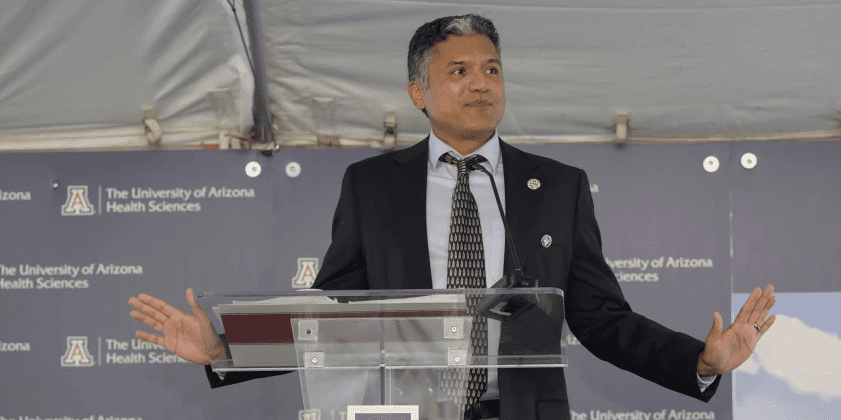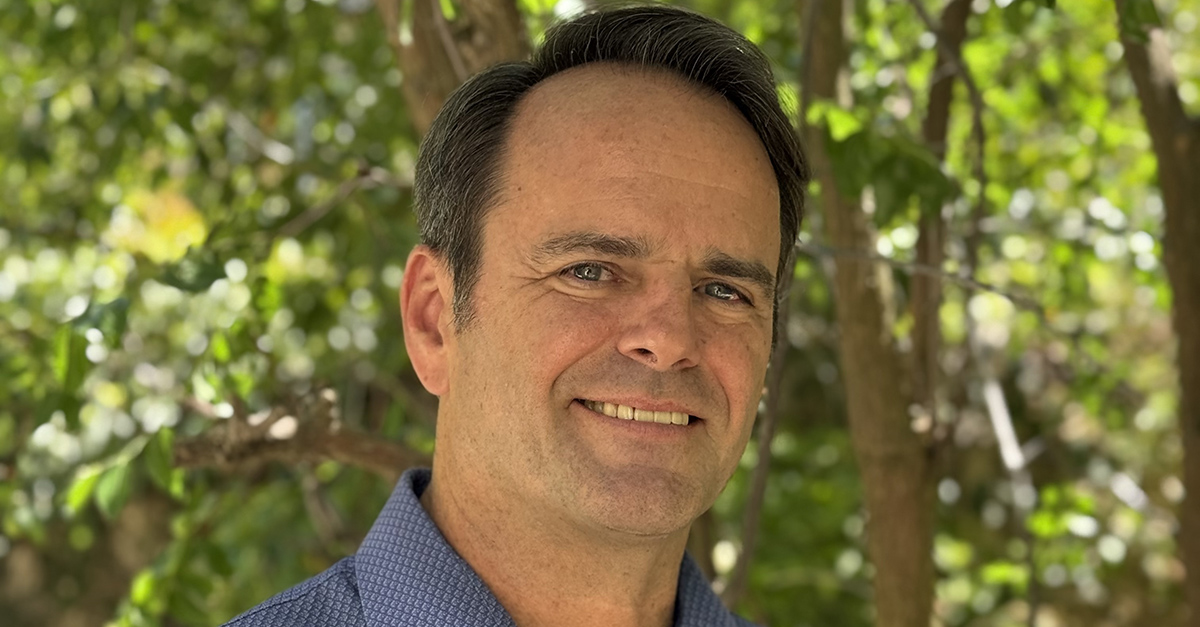
On October 30, the University of Arizona Health Sciences broke ground on the new Center for Advanced Molecular and Immunological Therapies (CAMI). This new immunology center will bring together up to 40 principal-investigator groups dedicated to developing novel strategies for diagnosis, prevention, and treatment of diseases. AAI member and former chair of the Public Communications Committee (PCC) Deepta Bhattacharya will lead CAMI as the inaugural executive director of the new biomedical research hub in Phoenix.
Dr. Bhattacharya is a professor at the University of Arizona College of Medicine – Tucson, and has been a tireless science communicator, especially throughout the COVID-19 pandemic when he could frequently be seen on television explaining how vaccines work. In his new role at CAMI, Bhattacharya aims to establish a model that expands and amplifies basic academic research by explicitly embracing commercialization and partnerships with the private sector.
Accelerating translation
“We are going to do things differently than a traditional academic unit,” Bhattacharya told us. “At CAMI, we want to and make sure that great ideas and basic discoveries get their chances to be tested commercially and in the clinic.” He plans to do this by incorporating the tasks necessary for successful translation of basic research into the tenure-evaluation process. “Immune checkpoint blockade therapies were a result of basic studies on T cell signaling; the COVID-19 mRNA vaccines depended on basic studies of innate sensing pathways.”
Bhattacharya’s first goal at CAMI is to hire immunologists who are “focused on moving basic findings into the clinic and new startup companies. This is the part of the job that has been the most work so far, but also the most exciting as I get to hear about bold new science and ideas.”
Advice for new scientists
Bhattacharya hopes that this approach will attract more young scientists to the field of immunology. Asked for advice for prospective immunologists, he said, “The only dogmatic advice I can offer is not to take dogmatic advice! I’ve always loved immunology because you can pursue your basic curiosity in so many different ways. And once you understand some of the basic rules, you can figure out how to bend or even break some of those rules to treat diseases.”




